
Policy paper | Czechia and NATO: Building a more capable, connected and credible European pillar
More info 17. 7. 2024
17. 7. 2024
CEE allies are key to building the capabilities-based, European Pillar NATO needs to enact genuine burden shifting and secure the alliance’s future. Dr Benjamin Tallis shows how Czechia can build on recent progress in defense procurement and increase its influence by prioritising the six elements Euro-NATO needs: core national war-fighting capabilities, logistics, military mobility, strategic enablers, air defence and long-range strategic strike.
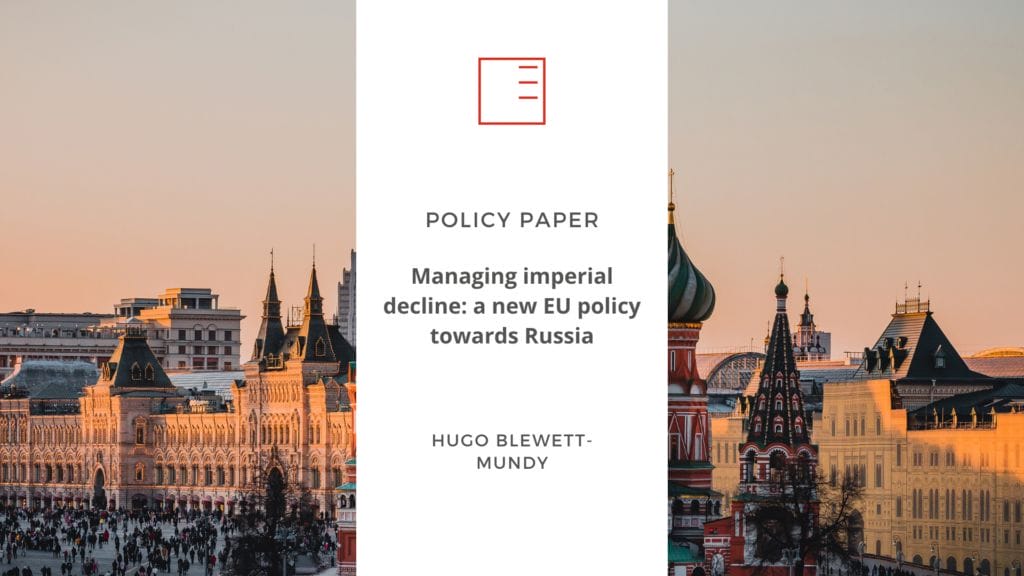
Policy paper | Managing imperial decline: a new EU policy towards Russia
More info 16. 7. 2024
16. 7. 2024
Russia's full-scale invasion of Ukraine in February 2022 has shattered the post-Cold War international order built upon East-West interdependence and cooperation. The European Union (EU) - which had tried to pursue a strategic relationship with Russia after the collapse of the Soviet Union in 1991 - must now adapt to the geopolitical reality of Russian neo-revisionism. Hugo Blewett-Mundy, an Associate Research Fellow at EUROPEUM Institute, identifies four areas where the EU's policy towards Russia could evolve to confront this emerging security situation in Europe.
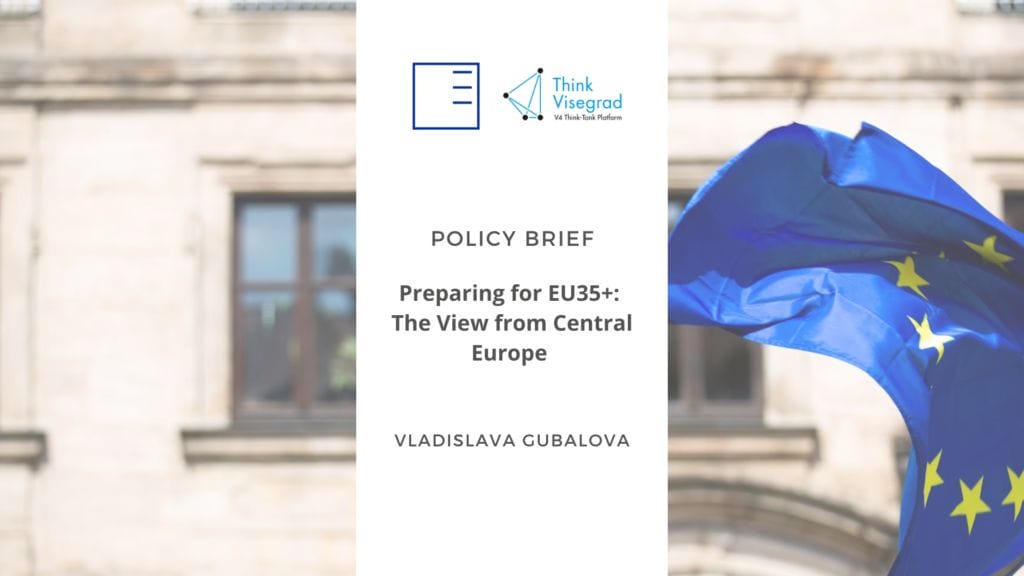
Policy Brief | Preparing for EU35+: The View from Central Europe
More info 8. 7. 2024
8. 7. 2024
Despite the historical support of EU enlargement policy by the Visegrad Four (V4), these Central European states are now faced with the challenge of reconciling their stances with the new realities of the process. As Ukraine and Moldova opened their accession negotiations, the EU seems to be torn on the questions associated with the future enlargement(s) - institutional reforms and changes within the EU budget. Transitioning from economic beneficiaries to potential contributors, the V4 states must evaluate the potential political and economic impacts of new members on both the EU and their domestic levels. Writes and proposes recommendations Vladislava Gubalova from GLOBSEC.
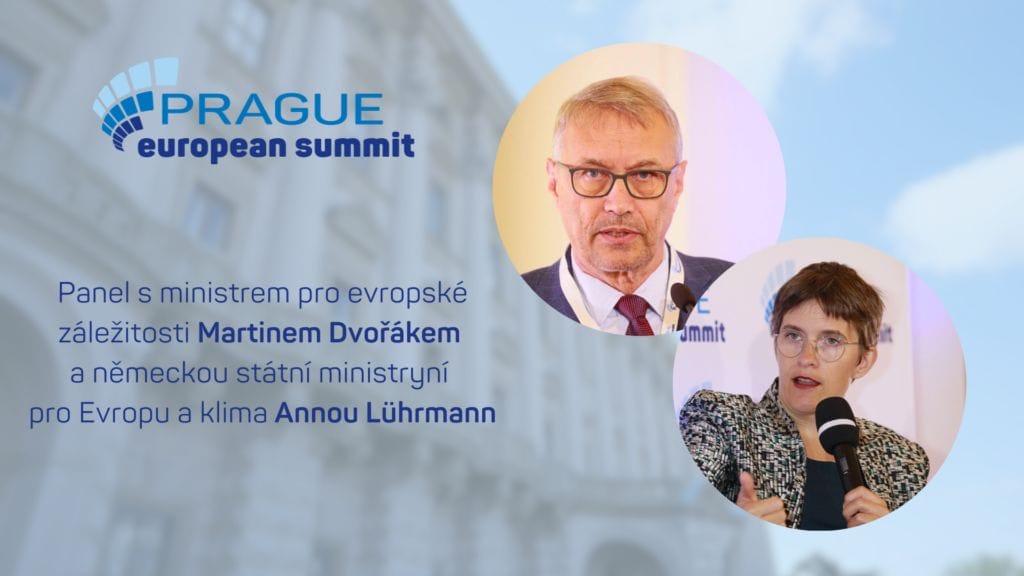
PES 2024 | The EU must cooperate not only militarily, but also to defend itself against cyber attacks from Russia, said Minister Dvořák at the conference
More info 14. 6. 2024
14. 6. 2024
The second day of the Prague European Summit 2024 conference at the Czernin Palace was opened with a speech by Czech Minister for European Affairs Martin Dvořák. He thinks of the enlargement of the European Union as crucial. "We have to realize that the enlargement of the EU, our defense and security and the current Central European position are interconnected," he said.
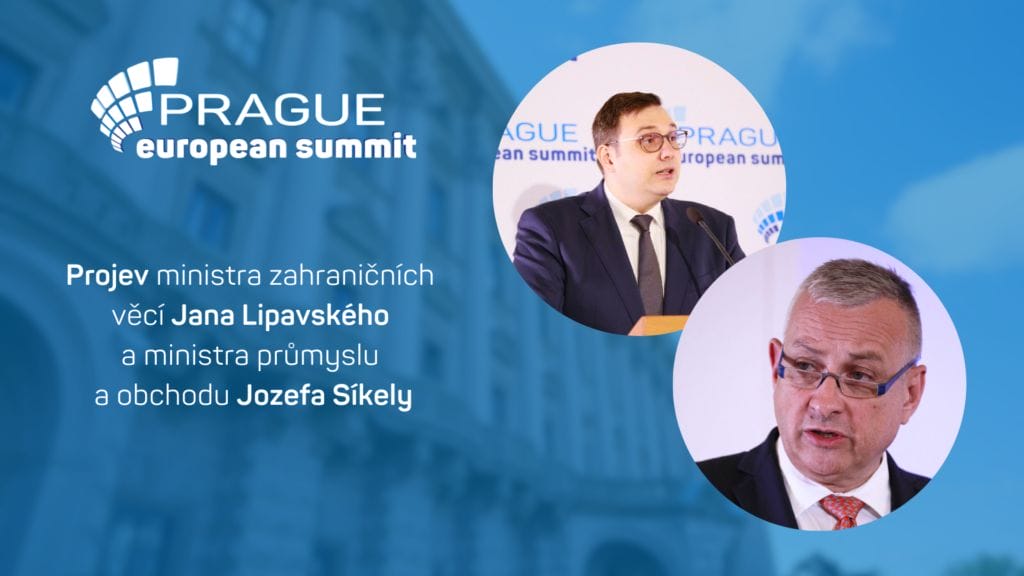
Prague European Summit | "Nuclear energy must be part of the Green Deal." Ministers Lipavský and Síkela presented their priorities for the next European Commis
More info 13. 6. 2024
13. 6. 2024
Minister of Foreign Affairs Jan Lipavský and Minister of Industry and Trade Jozef Síkela delivered speeches at the 10th anniversary of the Prague European Summit. Both responded to the ever-changing challenges facing Europe and Russia's expanding aggression, while Minister Síkela stressed the need of economical transformation.
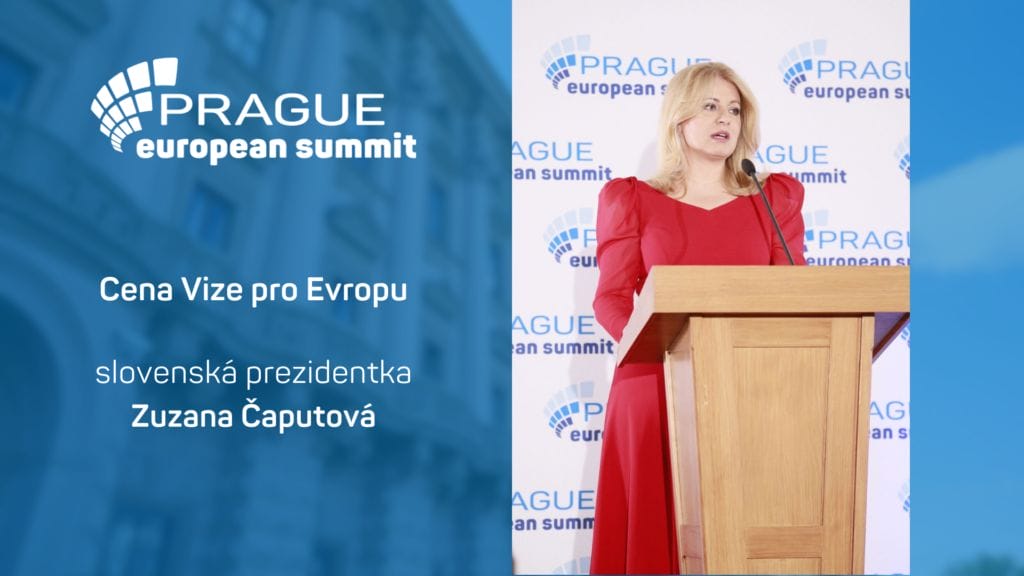
Prague European Summit | Slovak President Čaputová warned against the rise of extremism and hatred on social media
More info 13. 6. 2024
13. 6. 2024
Slovak President Zuzana Čaputová was the guest of honour at the 10th anniversary Prague European Summit. At the Czernin Palace, she received the traditional Vision for Europe Award from the Czech Minister of Foreign Affairs Jan Lipavský.
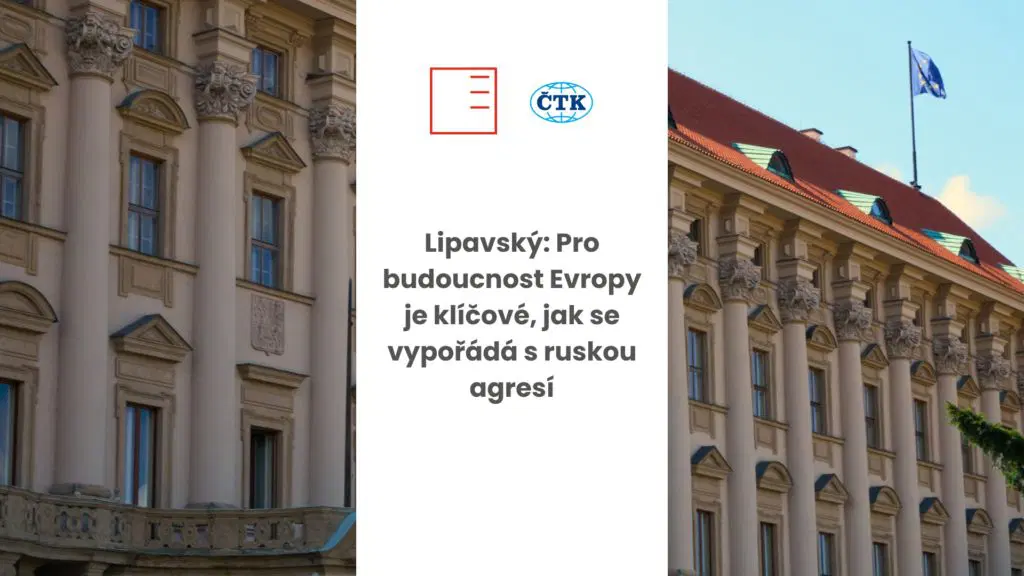
ČTK | Lipavský: Dealing with Russian aggression is key for the future of Europe
More info 13. 6. 2024
13. 6. 2024
According to Minister of Foreign Affairs Jan Lipavský, it is crucial for the future of Europe how it deals with Russia's brutal aggression towards Ukraine and its increasingly aggressive stance towards the West. He also emphasized that it will be essential for the European Union to ambitiously strengthen its role as a global player in the coming period, including prompt action in the development of the defense industry. He presented this vision in his speech at the Prague European Summit co-organized by EUROPEUM Institute and the Institute of International Relations.
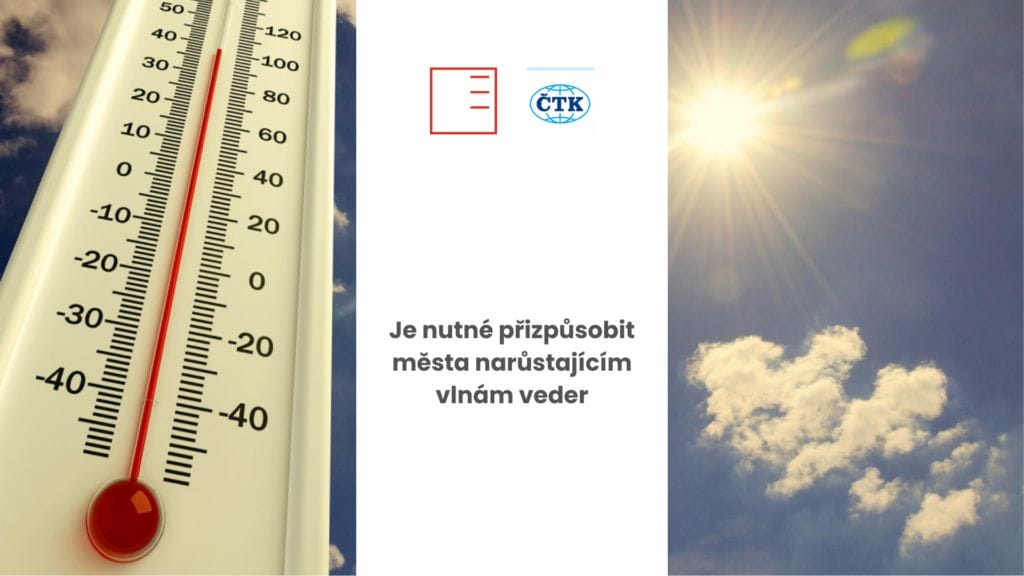
ČTK | The necessity to adapt cities to the increasing heatwaves
More info 3. 6. 2024
3. 6. 2024
With the increasing frequency of tropical days due to climate change, it is essential to adapt cities as soon as possible through various adaptation measures, such as planting trees and plants. Experts emphasize the need for projects that reduce temperature and improve the quality of life for city residents, despite the financial challenges of their implementation. ČTK reports on the discussion on climate change organized by EUROPEUM Institute.
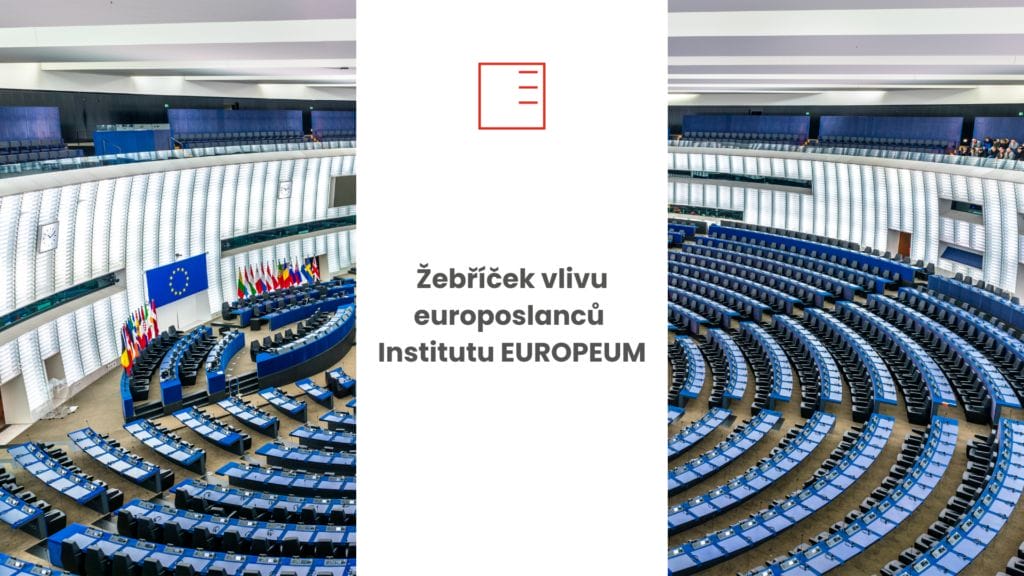
EUROPEUM Institute's ranking of MEPs' influence
More info 27. 5. 2024
27. 5. 2024
EUROPEUM Institute organized a survey among selected experts and stakeholders in European politics to evaluate the performance of current Czech MEPs. The performance of MEPs is difficult to evaluate because there is no completely objective set of criteria that would clearly show this. Therefore, EUROPEUM approached diplomats, officials, academics and other experts from the EU policy environment to compile its own ranking.
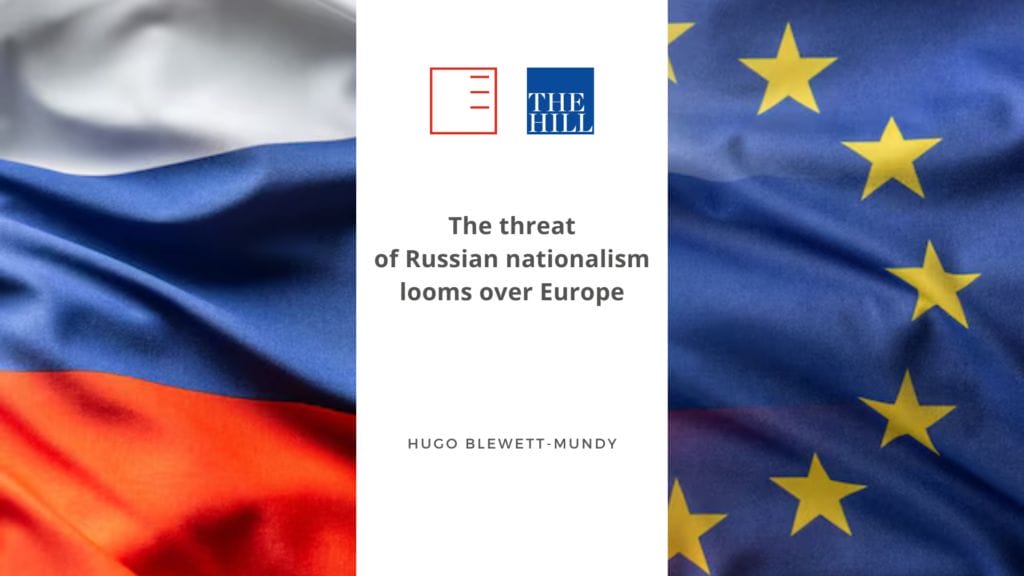
The Hill | The threat of Russian nationalism looms over Europe
More info 19. 5. 2024
19. 5. 2024
The threat of Russian nationalism poses a serious danger to Europe, as emphasized by the EU's High Representative for Foreign Affairs and Security Policy Josep Borrell in his speech in April. Russia is attempting to reassert its influence, particularly through its war against Ukraine, which undermines European security. What impact does the reemergence of Russian nationalism, supported by China, have on European security, and how should the West respond to this geopolitical reality? In his commentary for the American news website The Hill, Hugo Blewett-Mundy, an external collaborator and research fellow at EUROPEUM Institute, addresses this topic.
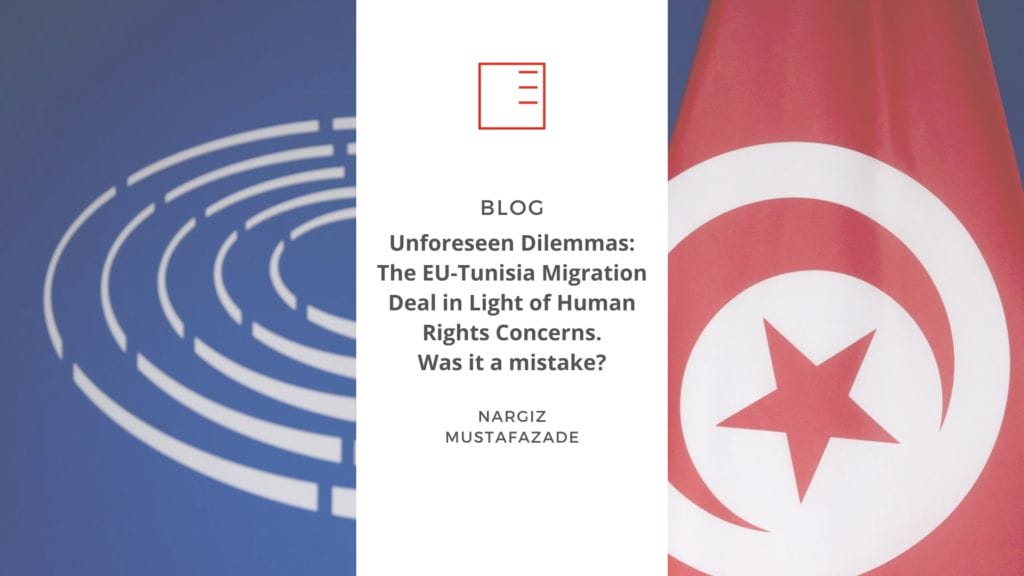
BLOG | Unforeseen Dilemmas: The EU-Tunisia Migration Deal in Light of Human Rights Concerns. Was it a mistake?
More info 16. 5. 2024
16. 5. 2024
Tunisia has become the main exit point for asylum seekers and refugees, especially those from sub-Saharan Africa. The EU, faced with a surge in arrivals to Lampedusa, has bolstered its cooperation with Tunisia, signing a Memorandum of Understanding with President Kais Saied. However, questions arise over the EU's handling of human rights abuses in Tunisia, reminiscent of past agreements with Turkey. Nargiz Mustafazade, a trainee in the Brussels office of EUROPEUM Institute, writes about this topic in her blog.

BLOG | Radio Silence: EU Media Laws in the Hungarian Context
More info 15. 5. 2024
15. 5. 2024
The European Union has passed major legislation to try and secure media freedom and independence in recent years. However, for the state of media pluralism in certain Member States, these efforts have come too late. In the Hungarian context, a pro-ruling party media ecosystem stands well-entrenched in the private and public media sector. Writes our researcher, Henry Barrett, a Fulbright-Schuman Grantee.